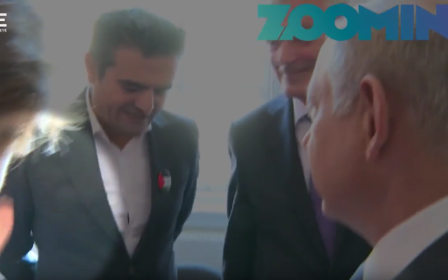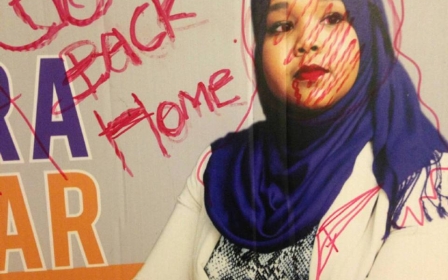Wild, wilder, Wilders: Meet Holland’s very own Trump

It seems that every Western democracy has to have one these days: a wide-eyed, wild-haired clown, preferably blond, who excels in lies, insults and hate speech to polarise society and steal the limelight. The United States have Donald Trump, England has Boris Johnson, France Le Pen and The Netherlands Geert Wilders, who is like the sum of the three above minus Trump’s billions.
Born in in 1963 in Venlo in the deep south of the country, Wilders has arguably been Holland’s most controversial and influential politician for over a decade. Despite a lack of higher education, he became an MP for the Liberal Party (VVD) in 1997. Deeming the party that groomed him “too left,” Wilders in 2004 decided to go it alone by establishing the Party for Freedom (PVV), which has had a presence in the Dutch parliament ever since.
The 53-year-old is obsessed with an extremely crude interpretation of Islam and fears what he calls the Islamisation of Holland
The PVV is by and large a one-man show. Formally, it is part of the Group Wilders Association, which legally must have at least two founders and one member. Founders are the Geert Wilders Foundation and Geert Wilders himself, while its one and only member is again, Wilders himself. People can become a sympathizer or volunteer, but never a member. It saves Wilders the trouble of general meetings and other people’s opinions.
But, then again, who needs more than Wilders when you’ve got Wilders? With his perfectly polished peroxide hairdo, the Dutch maverick is known as the Mozart and Marilyn Monroe of the Low Lands. Yet, more so than his flashy locks, it is his perplexing one-liners that never fail to write headlines.
The 53-year-old is obsessed with – to put it mildly – an extremely crude interpretation of Islam and fears what he calls the Islamisation of Holland and the creation of Eurabia. Meanwhile, insulting Muslims and minorities seems to have become a full-time job. The latest PVV electoral programme is no exception.
With parliamentary elections scheduled for March 2017, Wilders on 25 August presented the PVV political wish list which, including budgetary considerations, was the size of an A4 paper. “With this A4, The Netherlands will be ours again,” Wilders said.
Main objectives: a ban on the Quran, which according to Wilders is a book of violence comparable to Hitler’s Mein Kampf, and a ban on all mosques and Muslim immigrants. In addition, to better preserve Dutch identity, The Netherlands a la Britain should leave the European Union.
Wilders has been leading the polls since the summer and with a projected 28 out of 128 seats the PVV, on paper, is now Holland’s largest political party
Despite the programme’s lack of detail and questionable feasibility – the Dutch constitution guarantees freedom of religion and a rewrite would require a two-thirds parliamentary majority – Wilders has been leading the polls since the summer. Indeed, with a projected 28 out of 128 seats the PVV, on paper, was Holland’s largest political party by mid-October.
While such a prognosis is embarrassing enough for a country once known as progressive, it is unlikely to become reality. Ever since 2004, Wilders does well in the polls only to gradually shrivel as elections approach. Currently, the PVV has 15 seats and it is expected to remain more or less the same size.
The reason Wilders does so well in the polls is arguably due to the protest vote being loudest when the moment of truth, in this case the elections, is furthest away. His hard-hitting banter, blaming the “foreign element” for just about everything that is wrong in Holland, generally appeals to the underbelly of Dutch society.
And, unfortunately, there is a growing group of disenchanted citizens who increasingly feel economically and politically sidelined and are keen to pinpoint a scapegoat. The picture is not entirely different from Trump voters in the Mid-West or Brexit voters in northern England, who have seen their fortunes turn and no longer feel heard by Washington and London. Theirs too is first and foremost a voice of protest.
There is a growing group of disenchanted citizens who increasingly feel economically and politically sidelined and are keen to pinpoint a scapegoat.
Even if the PVV obtains, say, a quarter of the vote, it is unlikely to govern. Unlike Britain or the US, Holland currently counts 10 political parties in parliament, which can only govern by forming a coalition. Wilders, however, has such a bad reputation when it comes to cooperating and compromising that nearly all parties have vowed not to work with him.
Still, although Wilders has limited direct power, his influence over the years has been substantial. As other parties feared losing part of the electorate to the wild-haired windbag, who gave the disgruntled both a voice and a culprit, the whole political spectrum in The Netherlands has made a turn towards the right. One consequence is that Holland currently has one of the toughest immigration policies on the entire continent.
Meanwhile, it is odd that Wilders of all people has become the torchbearer for the Dutch nationalist, anti-immigration and anti-Islam movement. I mean, it is not for nothing that Wilders dyes his hair is a notch blonder than a natural blond will ever be.
One should know that Wilders’ grandmother is Indonesian. Some people have claimed that as a child, he was harassed for being slightly darker than the other kids in school. Could it be that Wilders the bullied has become Wilders the bully?
As other parties feared losing part of the electorate to the wild-haired windbag, the whole political spectrum in The Netherlands has moved to the right.
In response to the presentation of the PVV electoral programme, UN human rights chief Zeid Ra'ad al-Hussein in a speech on 6 September directly addressed Wilders and “all those like him – the populists, demagogues and political fantasists.”
“A decade ago, Geert Wilder’s manifesto [and Cleveland speech] would have created a worldwide furore,” Hussein said. “Now? Now, they are met with little more than a shrug, and, outside the Netherlands, his words and pernicious plans were barely noticed. Are we going to continue to stand by and watch this banalisation of bigotry, until it reaches its logical conclusion?”
Hussein warned how xenophobia and bigotry can be weaponised, how fear can be turned into hatred and called upon the world the “draw the line and speak up.” Perhaps that is just what the court in the city of The Hague did when on 15 October it decided that the state can prosecute Wilders for hate mongering.
The case was brought over comments at a rally in The Hague in March 2014 when Wilders had bluntly asked his supporters if they wanted “more or less Moroccans” in the country, upon which the crowd started chanting: “Less, less, less.” Wilders’ reply: “Then we’ll take care of that.”
If convicted, the Marilyn Monroe of the Low Lands can be sentenced to up to one year in jail. The question is, however, if that will silence and delegitimise him or only bring in more votes during the 2017 elections.
- Peter Speetjens is a Dutch journalist who lived in Lebanon for 20 years, regularly travels to India and has a special interest in how 19th century writers helped shape our conceptions of the world today.
The views expressed in this article belong to the author and do not necessarily reflect the editorial policy of Middle East Eye.
Photo: Dutch right-wing Freedom Party politician Geert Wilders speaks during a debate about the attacks in Paris in The Hague on 19 November 2015 (AFP)
Stay informed with MEE's newsletters
Sign up to get the latest alerts, insights and analysis, starting with Turkey Unpacked
Middle East Eye delivers independent and unrivalled coverage and analysis of the Middle East, North Africa and beyond. To learn more about republishing this content and the associated fees, please fill out this form. More about MEE can be found here.





